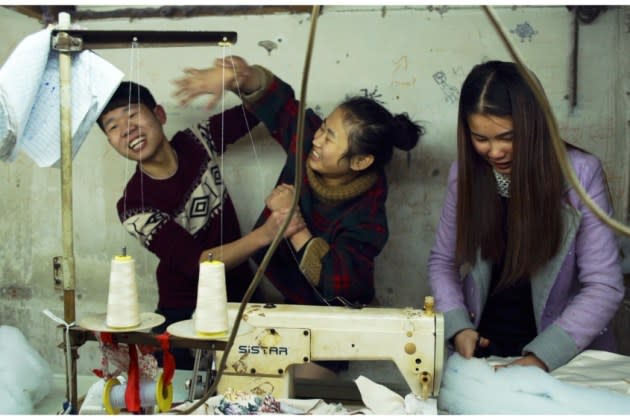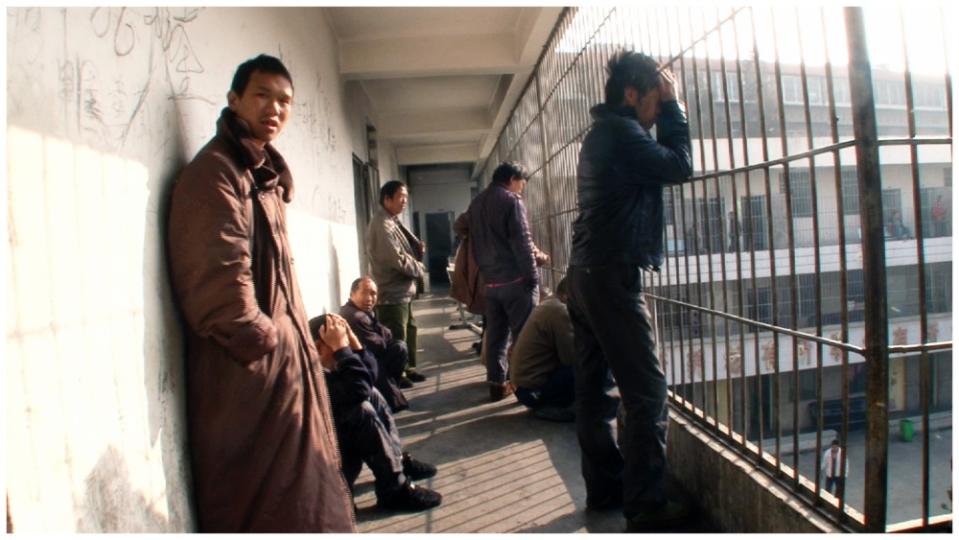Wang Bing Talks Continuing ‘Youth,’ Finally Feeling ‘Satisfied’ With His Films: ‘You Learn to Respect Them’

Chinese director Wang Bing found joy in latest film “Youth (Spring),” focusing on young textile workers. But as he continues to work on his trilogy, things might get a bit darker.
“Their age is one of the factors here: they are so young and it’s just a happy time in your life. You are experiencing so many things, for example romantic relationships. Their actions are not entirely controlled by rationality, which made for vivid footage,” he tells Variety ahead of traveling to IDFA, where he is this year’s Guest of Honor.
More from Variety
MetFilm Acquires International Rights to Icelandic Crowd Pleaser 'The Home Game' (EXCLUSIVE)
Documentary Filmmakers Discuss Viability of Industry Amidst Livelihood Crisis
“But here’s the thing – this trilogy is not finished yet. I will finish the second and third part by 2024 and they are not the same [as the first]. Maybe when it is completed, it will feel completely different?”
Despite winning multiple awards over the years, including Locarno’s Golden Leopard for “Mrs. Fang,” making films hasn’t necessarily gotten easier, he admits. Especially ones with a lengthy running time.
“It’s hard, but my films aren’t commercial, which means the expectations when it comes to box office numbers are low. Also, I think that every film should be as long as it needs to be in order to feel complete.”
And yet his audience keeps growing, even though showing his docs in native China continues to be a struggle.
“My first film ‘Tie Xi Qu: West of the Tracks’ spread around the country through pirating. There were so many illegal copies. By 2005, we found out there were five companies producing them! As a result, many people have seen it, including my protagonists, who then gave me feedback,” he says.
“With ‘Youth,’ pirated versions started to appear online only one month after its Cannes premiere. It’s not so difficult to access my films in China. I don’t participate in this process, but I am not trying to stop it.”

But ‘difficult’ is not the word he is shying away from, discussing various hardships he has encountered throughout the decades.
“When I was making ‘Youth,’ this space was so small. It was packed with people and machines, and I could hardly move. It was similar to [2013 release] ‘Til Madness Do Us Part,’ made in a psychiatric asylum. There was only this one corridor and it’s so hard when you are trying to film one person and then another one just shows up.”
While similarly claustrophobic, “Mrs. Fang” also posed some problems – “It’s about the death of one person and the meaning of life for one individual. It was made mainly in her home and her community, which also limits you” – having more space wasn’t exactly better.
“When I was making my first film [about the decline of Shenyang’s industrial district], I had a lot of freedom. The whole city was mine! But it was almost too big and I found myself wandering around, feeling lost,” he says.
“There is nothing easy about any of my films. There is nothing easy about making films in general.”
He has learnt to appreciate his work now, however.

“I work very hard on each one of my films. ‘Dead Souls,’ ‘West of the Tracks’ or ‘Youth’ demanded so much effort and I can say I am satisfied with them now. I am not saying my films are better than others, but when you devote so much energy to making them, you learn to respect them.”
“Then again, I have worked in this industry for 20 years and I am not sure if there is anything I should be particularly proud of. Usually, I don’t have time to think about it. There are so many things to be done.”
Despite following composer Wang Xilin in his 2023 film “Man in Black,” Bing remains known as the chronicler of everyday life.
“I have made many films about ordinary people, so sometimes, it is assumed I am only interested in them. It’s really not the case. I am not strict like that, because I don’t want to limit myself, ever. When I meet an interesting person, I want to know I can make a film about them,” he stresses.
“It’s true that most of my protagonists don’t know anything about cinema and sometimes, that’s the exact reason why I approach them. They ask why I want to make a film about them, but after a while, they stop. They are too busy and they have to earn their living. But when they do, I say, rather simply: ‘Because it’s an interesting story.’”
“I think there shouldn’t be limitations when it comes to documentary filmmaking, period. Everyone should be able to do whatever they want.”
Best of Variety
Sign up for Variety’s Newsletter. For the latest news, follow us on Facebook, Twitter, and Instagram.

 Yahoo News
Yahoo News 
